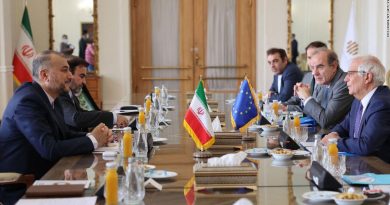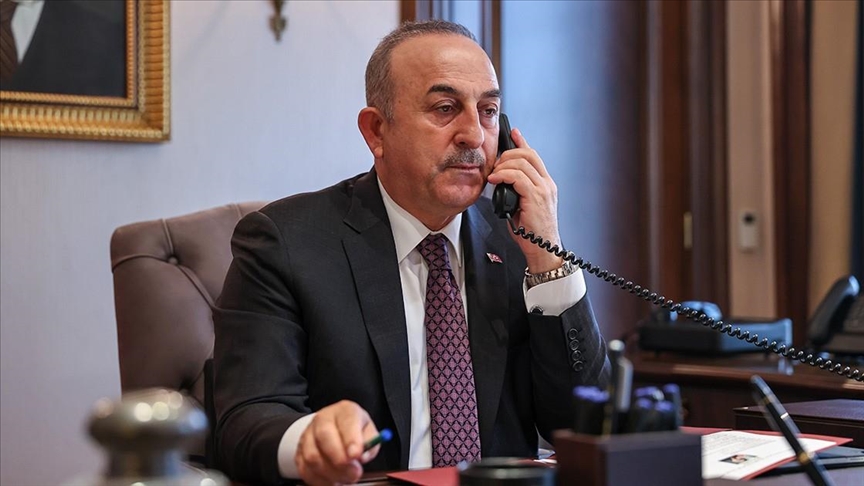Bush Rebuffs Declassifying 9/11 Report
The 28 pages caused Saudi Arabia to be "wrongfully and morbidly accused of complicity in the tragic terrorist attacks," he said.
The classified section is part of a 900-page congressional report on the terrorist attacks that was released last week by a joint panel of the House and Senate intelligence committees.
Although the declassified section of the report refers only to "foreign support," U.S. administration officials said those two words refer to Saudi Arabia.
The public section, however, spoke about a possible financial support by individuals in the Saudi government for some of the 19 hijackers, the Post said.
And the top Saudi diplomat insisted: "Saudi Arabia is indicted by insinuations. … It is an outrage to any sense of fairness that 28 blank pages are now considered substantial evidence that proclaim the guilt of a country which has been a true friend and partner of the United States during 60 years.
"The report seems to have overlooked or intentionally ignored Saudi Arabia’s continuing efforts to fight terrorism. … We have nothing to hide. And we do not seek, nor do we need to be shielded," he averred.
‘No Qualms’
Bush made his decision two hours before his meeting with Prince Saud, which took place at around 1900 GMT Tuesday, asserting that he had "no qualms at all" about keeping the data secret.
"There’s an ongoing investigation into the 9/11 attacks and we don’t want to compromise that investigation. If people are being investigated, it doesn’t make sense for us to let them know who they are," Bush told a joint press appearance with Israeli Prime Minister Ariel Sharon.
He reiterated that it would make no sense to do so "during the war on terror, because it would help the enemy if they knew our sources and methods.
"Secondly, we have an ongoing war against al-Qaeda and terrorists, and the declassification of that part of a 900-page document would reveal sources and methods that will make it harder for us to win the war on terror."
After a meeting with Bush, Prince Saud said he understood Mr. Bush’s reasons, but he added that only the release of the still-classified pages could allow the kingdom to rebut its critics, reported the New York Times.
"Everyone is having a field day casting aspersions about Saudi Arabia," the paper quoted him as telling reporters outside the White House.
Criticized
For his part, Senator Bob Graham, a Democratic contender for the White House in the 2004 elections and former chairman of the Senate Intelligence Committee, criticized the administration’s decision not to declassify the 28 pages.
"The White House has again today decided that it’s more important to deny the people of America the right to know what happened before and after 9/11 in terms of involvement by a foreign government (than) to open the record for all to see," Agence France-Presse (AFP) quoted Graham as saying Tuesday.
Sen. Richard C. Shelby, a vice chairman of the congressional inquiry, reiterated that that 90 to 95 percent of the classified pages could be released without jeopardizing national security.
He said Sunday on NBC that they may be withheld because they "might be embarrassing to some international relations."
Eleanor Hill, staff director for the joint congressional inquiry, echoed the same view asserting Tuesday that "more could be released without doing harm to national security."
The report also blamed the U.S. security and intelligence services for the September 11, 2001, saying that they might have been prevented, had the U.S. security services shared and acted upon information they had at the time.
Extradition
The Post further said that U.S. administration officials used Saud’s White House visit to push for the extradition of Omar Bayoumi, a Saudi aviation official, accused by the congressional report of being a key associate of two of the 9/11 hijackers.
It alleged Bayoumi held a meeting at the Saudi Consulate in Los Angeles In January 2000 and then went directly to a restaurant where he met future hijackers Khalid Almihdhar and Nawaf Alhazmi, whom he took back with him to San Diego.
Prince Saud said the request was made after his meeting with Bush, in a separate session with U.S. National Security Adviser Condoleezza Rice.
He said Rice told him that she was raising the issue at the request of FBI Director Robert S. Mueller.
But the Saudi foreign minister countered that the United States was free to question him inside Saudi Arabia.
"I said this will be simple…. If you want to question anybody in Saudi Arabia, this can be handled by the CIA and FBI station managers there and it doesn’t require agreement on a high level between the two countries," he told a press briefing at the Saudi Embassy in the U.S.
Saudi officials said that Saudi Arabia had released Bayoumi after he was questioned by U.S., British and Saudi officials.
Saudi Interior Minister Prince Nayef bin Abdul Aziz ruled out Tuesday the possible extradition of Bayoumi.
"We have never handed over a Saudi to a state or foreign party and we will never do it," he said.



